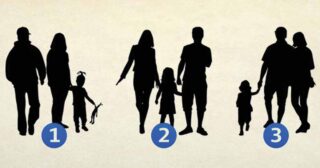13 Reasons Kids Might Not Feel Close to Their Parents and Why They Shouldn’t Blame Themselves
There are various reasons why kids might not feel close to their parents, and it's important for children to understand that these feelings are not their fault. Here are 13 possible reasons for emotional distance, along with explanations as to why they shouldn’t blame themselves:
1. Lack of Emotional Availability
- What It Means: Some parents struggle to show affection or engage emotionally due to their own issues, such as stress, mental health problems, or unresolved trauma.
- Why Kids Shouldn’t Blame Themselves: Emotional unavailability is often rooted in the parent’s personal challenges, not the child’s actions. It’s something outside the child’s control.
2. Overly Strict or Controlling Parenting
- What It Means: When parents enforce rigid rules or control their children's lives too much, it can create a barrier to open communication and trust.
- Why Kids Shouldn’t Blame Themselves: Strict parenting styles are often based on the parent’s fears or need for control, not on the child’s behavior or worth.
3. Emotional Neglect
- What It Means: Some parents provide for their child's physical needs but fail to nurture their emotional well-being, which leads to feelings of disconnection.
- Why Kids Shouldn’t Blame Themselves: Emotional neglect is a result of the parent’s inability to recognize or fulfill the child’s emotional needs, not a reflection of the child’s value.
4. Parent-Child Personality Clashes
- What It Means: Sometimes, parents and children have very different personalities, leading to misunderstandings and emotional distance.
- Why Kids Shouldn’t Blame Themselves: Personality differences are natural and not a sign of failure or wrongdoing by the child.
5. Parental Mental Health Issues
- What It Means: Parents who struggle with depression, anxiety, or other mental health conditions may have difficulty connecting with their children emotionally.
- Why Kids Shouldn’t Blame Themselves: Mental health challenges are beyond the child’s control, and parents may not have the capacity to engage fully, even if they love their child.
6. Lack of Time Together
- What It Means: Busy work schedules, social obligations, or single parenting can limit the amount of quality time parents spend with their kids.
- Why Kids Shouldn’t Blame Themselves: The child is not at fault for their parents' busy schedules or external commitments.
7. Favoritism or Sibling Rivalry
- What It Means: Some parents may unintentionally favor one child over another, leading to feelings of neglect or emotional distance from the less favored child.
- Why Kids Shouldn’t Blame Themselves: Favoritism is often a result of the parent’s biases or struggles, not a reflection of the child’s worth or actions.
8. Unresolved Parental Trauma
- What It Means: Parents who experienced trauma in their own childhood may unintentionally pass down unhealthy patterns of emotional distance to their children.
- Why Kids Shouldn’t Blame Themselves: The parent’s trauma is not the child’s fault, and any emotional distance is a consequence of the parent’s unresolved pain, not the child’s behavior.
9. Substance Abuse Problems
- What It Means: A parent struggling with addiction may be unable to form a close emotional bond with their child, as their focus is diverted toward the addiction.
- Why Kids Shouldn’t Blame Themselves: Addiction is a powerful disease, and the parent’s behavior is dictated by their substance abuse, not by the child’s actions.
10. Divorce or Separation
- What It Means: A parental divorce or separation can lead to emotional distance, especially if the child feels caught in the middle or if one parent becomes less involved.
- Why Kids Shouldn’t Blame Themselves: The breakdown of the relationship between parents is an adult issue, not something caused by the child.
11. Parental Expectations and Pressure
- What It Means: Some parents set unrealistic expectations for their children’s academic, social, or personal achievements, leading to feelings of inadequacy and disconnection.
- Why Kids Shouldn’t Blame Themselves: The expectations reflect the parent’s desires, not the child’s worth or potential. The child’s value goes beyond achievements.
12. Cultural or Generational Differences
- What It Means: Cultural or generational gaps can make it difficult for parents and children to relate to each other, leading to misunderstandings and emotional distance.
- Why Kids Shouldn’t Blame Themselves: These differences are external and not something the child can control. Communication challenges are often due to different life experiences, not personal failure.
13. Fear of Rejection or Judgment
- What It Means: Some children fear being judged or rejected by their parents if they express their true feelings, which can lead to emotional distance.
- Why Kids Shouldn’t Blame Themselves: This fear often arises from the parent’s critical or judgmental nature, not from any inherent fault in the child.
Conclusion
Children should never blame themselves for feeling distant from their parents. Many factors contribute to emotional disconnect, most of which are beyond the child’s control. Understanding that the parent’s behavior often stems from their own challenges or upbringing can help kids realize that they are not responsible for the emotional distance. Seeking external support from trusted friends, family, or a counselor can also help bridge the gap and build healthier emotional connections.










